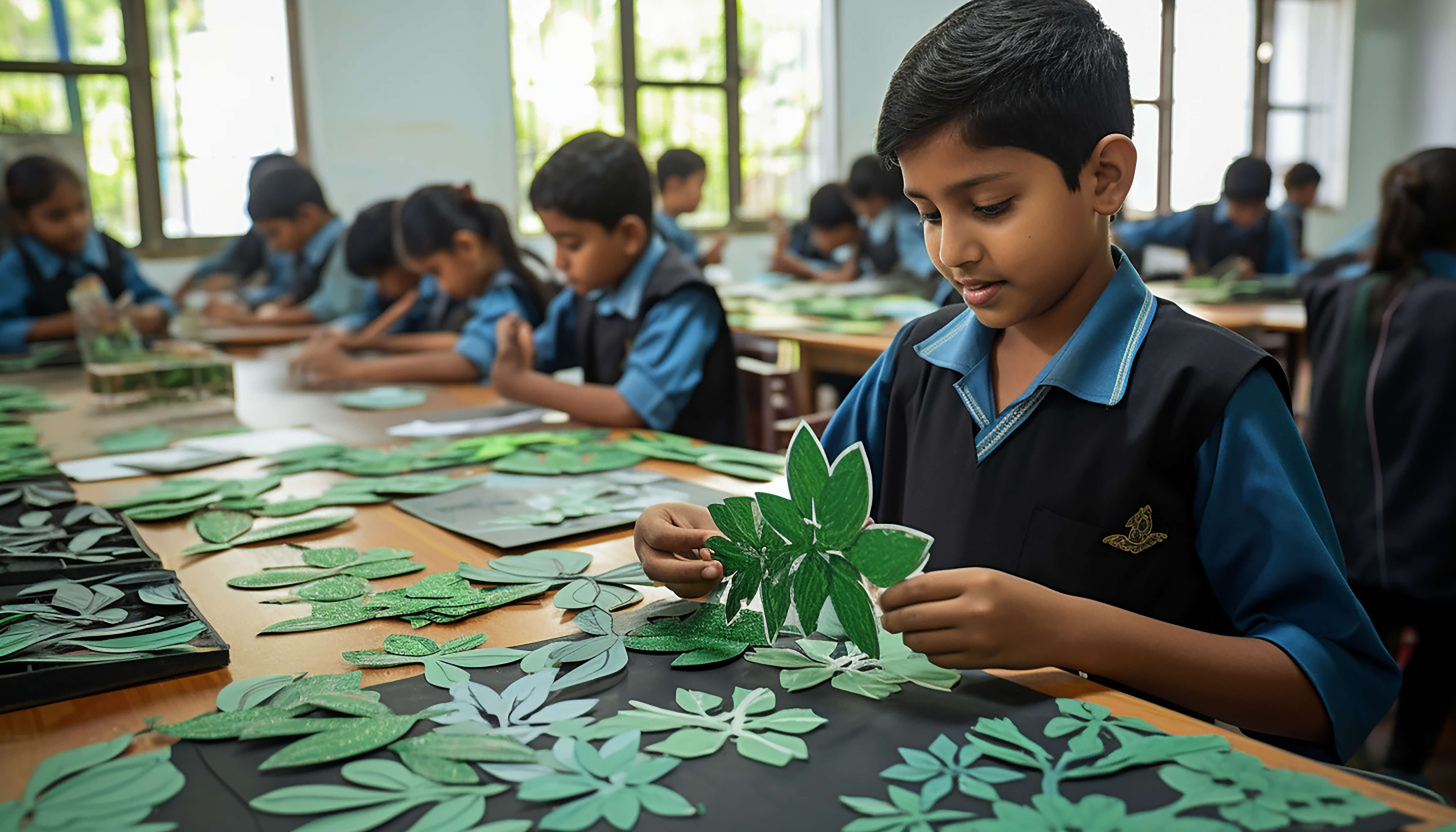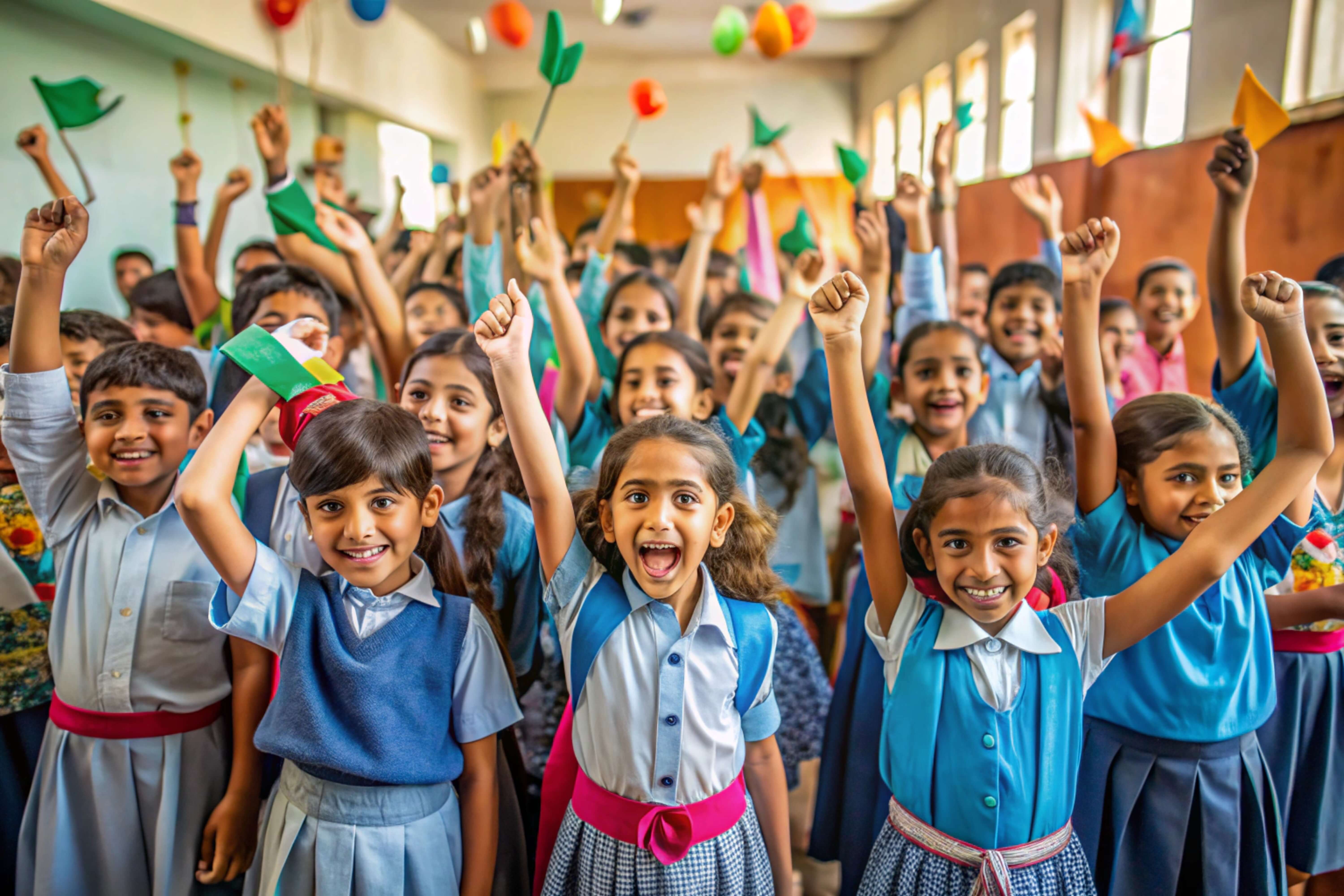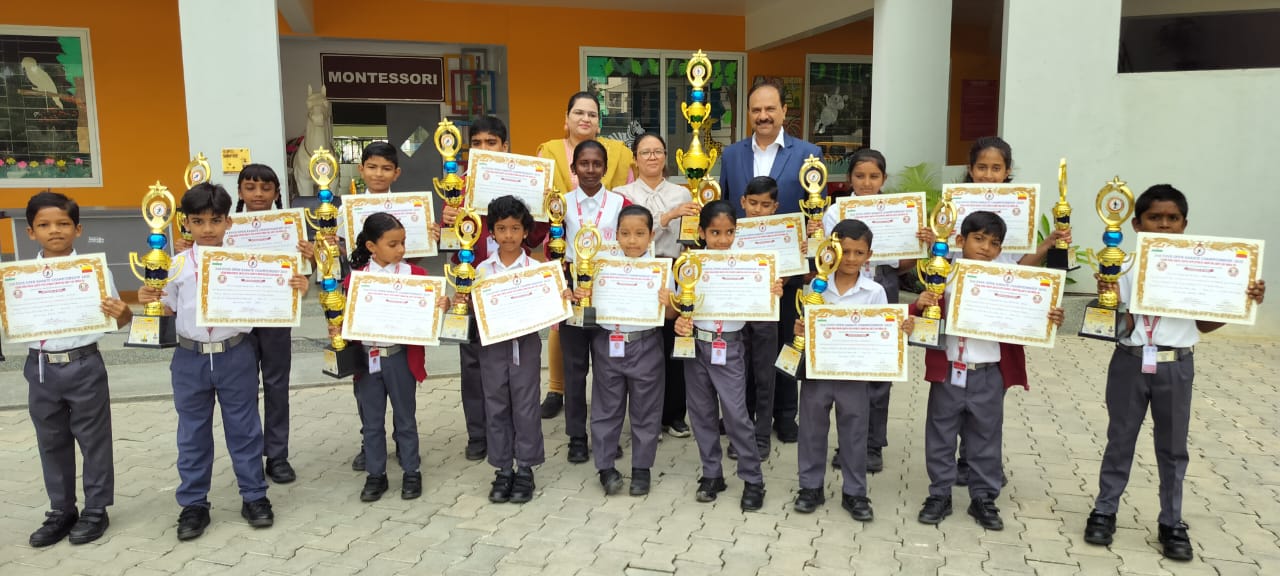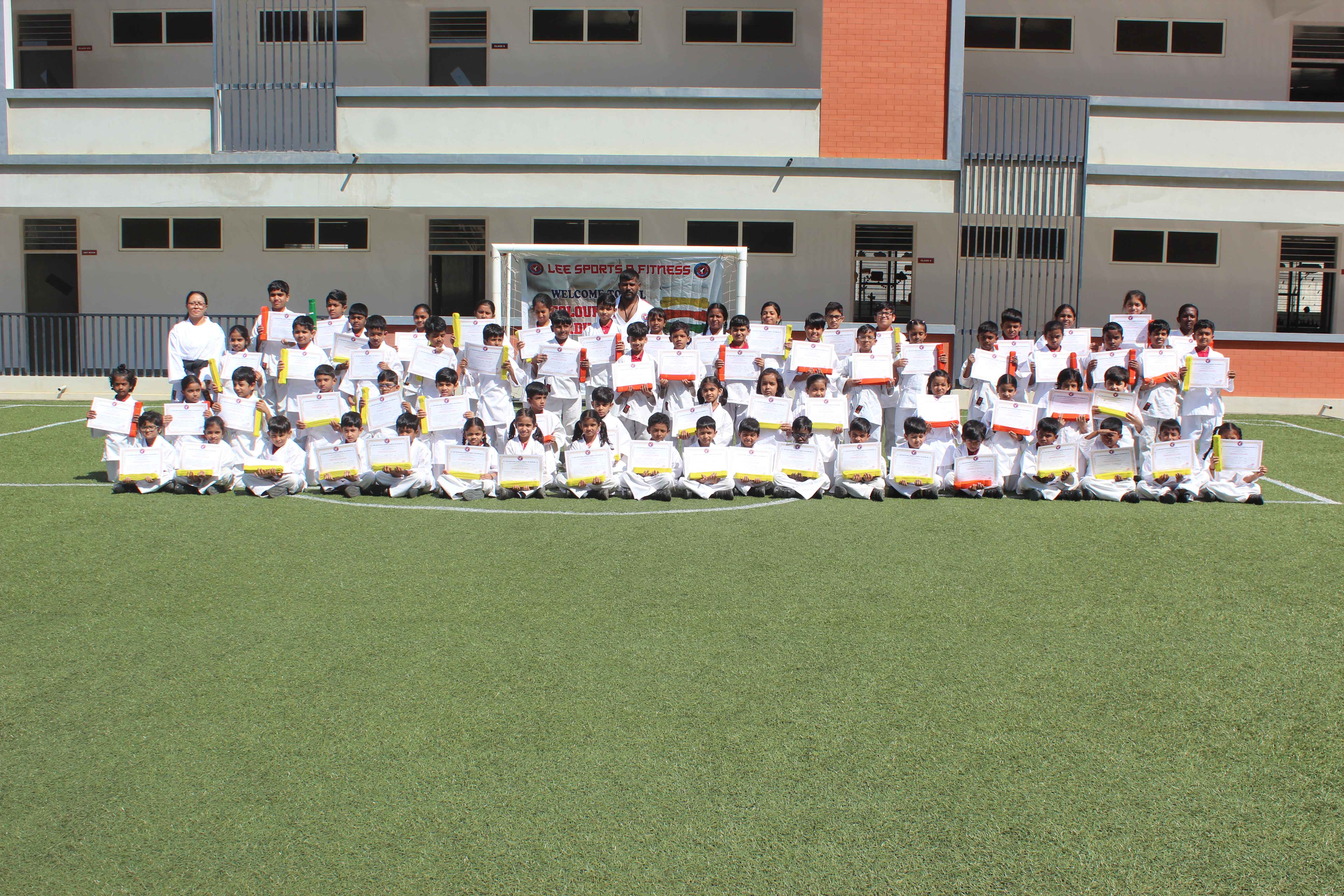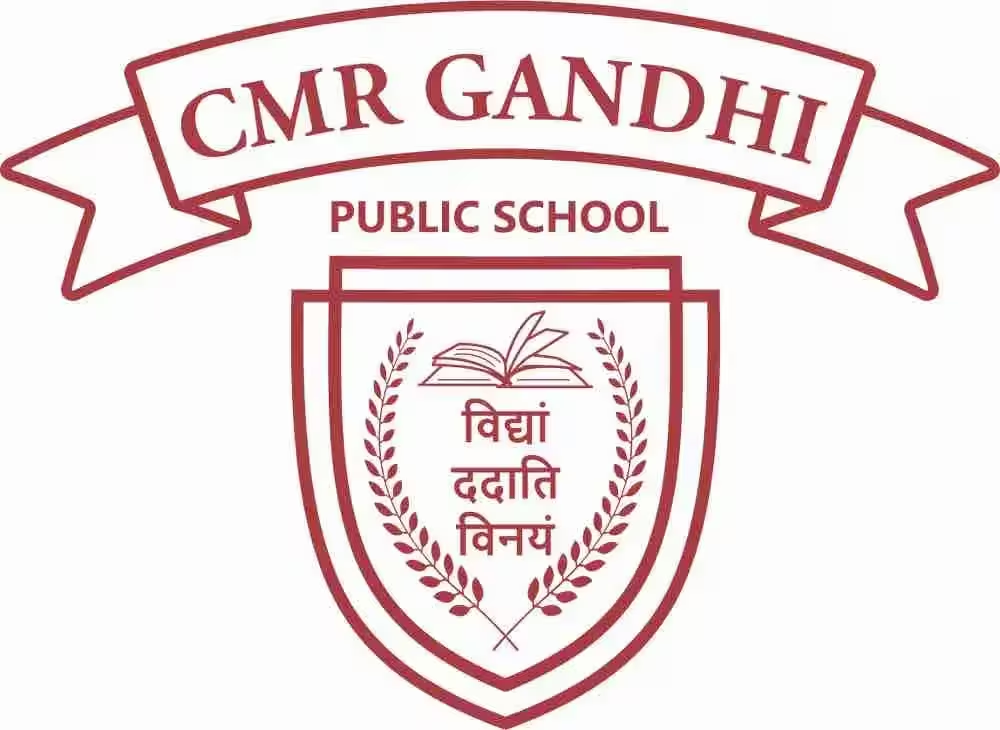Today, many parents are rethinking when to enroll their child into a formal school. Traditionally, kids spent 2–3 years in preschool before stepping into a structured academic environment. But now, with growing awareness and curriculum changes, more families are enrolling their kids in CBSE formal schools as early as age 4.
So why this shift?
Because formal schools offer a more structured, balanced, and future-oriented education model—one that not only focuses on learning but also on life skills, behavior, and academic mindset. In contrast, preschools usually focus only on social and emotional development.
This blog explores in detail the benefits of formal school over preschool, especially if you’re looking for long-term academic success and real-world readiness for your child.
Let’s begin with the basics. What actually sets formal CBSE schools apart from typical preschools?
Preschools – Focus on Exploration, Not Evaluation
Preschools are usually:
- Play-based: Activities revolve around free play, storytelling, toys, songs, and basic motor skills.
- Loosely structured: There’s no fixed academic syllabus. Learning is informal and child-led.
- No exams or homework: The goal is to socialize and develop emotional comfort, not measure learning.
This model helps young children develop emotionally and socially, but may not prepare them adequately for the demands of future classes.
In comparison, CBSE schools near Marathahalli like CMR Gandhi Public School and other regions follow a formal curriculum from age 4 onward.
They introduce:
- Defined learning goals: Children learn the alphabet, phonics, early math, storytelling, drawing, and life skills.
- Timetables and subject periods: Children are introduced to routines like circle time, snack break, English, Math, and activity periods.
- Mild assessments and feedback: Teachers observe progress and give feedback, preparing kids gently for exams in later classes.
This difference in approach is why so many parents now consider a cbse school for 4 year olds in India to be a better long-term choice than keeping the child in preschool for too long.
Early formal schooling doesn’t just build academic skills—it also nurtures discipline, focus, and responsibility.
Here’s how:
Learning Discipline and Responsibility
Formal schools train children to:
- Follow schedules: Wake up, get ready, pack the bag, arrive on time, attend classes in a sequence.
- Take care of belongings: Managing books, water bottles, stationery, and uniforms.
- Respect routines: Sitting in one place during class, waiting their turn, raising hands to speak.
These small daily actions build habits that carry through life—into higher education and the workplace.
Introduction to Homework and Structured Tasks
While preschools rarely assign homework, formal schools introduce light, development-based homework to:
- Reinforce classroom learning at home
- Build time management skills
- Encourage parental involvement in a child’s progress
This doesn’t mean pressuring the child—it’s about getting them used to daily learning responsibilities.
Enhancing Attention Span and Focus
At a CBSE school, your child is slowly trained to:
- Pay attention to instructions
- Sit through a full class period (15–30 minutes)
- Complete a worksheet or participate in guided tasks
These attention-building activities are essential for success in Grade 1 and beyond.
3️.Long-Term Academic Impact
Starting formal school early has clear academic advantages that show up over time.
Easier Adaptation in Higher Grades
Children already familiar with classroom behavior, structured learning, and basic academics have:
- Higher confidence in Grade 1
- Less anxiety during exams or assessments
- Better interaction with teachers and peers
It also eliminates the sudden shock that some preschoolers face when entering formal school after years of only play-based learning.
Foundation in Key Subjects
CBSE formal schools introduce core subjects even at foundational stages:
- Math: Number recognition, counting, simple patterns, and operations
- English: Phonics, letter tracing, vocabulary, storytelling
- EVS (Environmental Studies): Learning about family, nature, seasons, community helpers, and safety
This early start allows the child to build concepts slowly and retain them better over the years.
4️.Life Skills and Soft Skills Developed
One of the often-overlooked benefits of formal school over preschool is the opportunity to develop real-world skills.
Problem Solving
Activities like puzzles, storytelling, and group projects encourage children to think logically, make choices, and solve problems independently.
Public Speaking
Through show-and-tell, class discussions, and stage exposure, children develop confidence and clarity in speaking in front of others.
Even shy children blossom in structured environments with the right teacher support.
Social Etiquette
Children learn:
- How to wait their turn
- How to work in groups
- How to express feelings without tantrums
- How to accept feedback or correction gracefully
These are critical social behaviors that preschools may not emphasize through structured activities.
Co-Curricular Activities
Good CBSE schools in Marathahalli offer exposure to art, dance, music, sports, yoga, and competitions from the early years. These:
- Develop creativity
- Improve motor skills
- Reduce screen time
- Make school enjoyable and engaging
5️.The Role of Teachers in Nurturing Academic Mindset
Unlike preschool facilitators, formal school teachers are trained to:
- Follow academic goals
- Track individual learning styles
- Provide structured feedback to parents
- Support emotional and behavioral development
Regular Feedback and Parent Interactions
CBSE schools ensure regular:
- PTMs (Parent-Teacher Meetings)
- Report cards with developmental observations
- Communication about learning challenges and strengths
This gives parents a clear picture of their child’s growth—not just academically, but also emotionally and socially.
Encouraging Curiosity and Goal Setting
Teachers don’t just teach—they inspire. In the best formal schools:
- Children are encouraged to ask questions
- Teachers guide them to explore answers
- Students set simple goals like finishing reading or improving handwriting
This mindset, started early, becomes the backbone of future academic success.
Conclusion: Set the Right Foundation Early
While preschools are nurturing and comforting, they aren’t built to equip children for long-term academics. Formal CBSE schools offer a structured, age-appropriate environment where your child can grow mentally, socially, and emotionally.
If you’re based in Bangalore, several cbse schools in Marathahalli now offer admissions from nursery (age 4), combining playful methods with structured outcomes. Choosing one of the best cbse schools in Marathahalli like CMR Gandhi Public School can give your child the balance of discipline, fun, and a strong academic start.
Starting formal school at the right time is not about rushing childhood—it’s about building the foundation for confident, curious, and capable learners.
FAQs
1. Should preschool be skipped if formal schooling starts at age 4 or 5?
Not necessarily. Preschool helps in emotional development. But by age 4, children are ready for more structured learning. Enrolling them in a CBSE school for 4 year old in India ensures they don’t fall behind academically when compared to their peers.
2. Is CBSE formal school too strict for young kids?
No. Good CBSE schools in Marathahalli blend structure with care. They offer creative learning, physical activities, and personalized attention—ensuring kids feel safe, not pressured.
3. What’s the difference between CBSE and preschool curriculum?
The CBSE curriculum is structured, progressive, and prepares kids for board exams and competitive environments later. Preschools focus more on free play, art, and basic concepts without a formal syllabus.
4. What skills will my child gain from early formal schooling?
They will develop:
-
Academic readiness (reading, writing, math)
-
Discipline and daily routine
-
Focus, social behavior, and problem-solving
-
Confidence in classroom settings
5. Which are some of the best CBSE schools in Marathahalli for early learners?
Marathahalli has several reputed options offering a strong blend of academics and co-curriculars. Look for CBSE schools with child-friendly infrastructure, trained faculty, transparent communication, and a curriculum aligned with NEP 2020.




